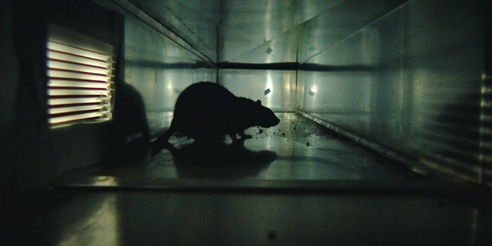 From New York City, to the Kandal Province, Cambodia.Morgan Spurlock's latest documentary, Rats, plays more like a horror film than a standard documentary, presenting an in-depth look at the rodents impact all around the world. Shot, edited, and scored like a Horror film, Spurlock's film details the startling abundance of these rodents, detailing the dangers they present to mankind in the form of disease while simultaneously exhibiting the increasingly difficult means it takes to kill them, due to their intelligence and abilities to develop resistances to modern chemicals designed to subdue them. Spurlock's approach is one-dimensional but effective, pulling out every stylistic horror trope in the book, from slow motion photography to jump scares, doing everything in his power to elevate the horror presented to the audience. One great example of this is profile of a New York exterminator, a man who details the true nature of these pesky rodents. Puffing on a stogie in a dimly lit basement, this grizzled man is a visual representation of toughness and masculinity, which makes his respect for these rodents all the more frightening as he reveals his rather grim perspective about the intelligence of these creatures and the respect he has for their ability to survive and multiple. While Spurlock's horror approach is forceful, even becoming a tad sillly at times, Rats is a very entertaining experience because of its creativity in design, being a film that is never outright scary but certainly not for the squeamish. The sequence taking place in New Orleans was particularly hard to experience, which finds a group of researchers performing autopsy's on rats in order to track the advancement of disease in the area. The grotesque nature of this sequence left me more uncomfortable than most horror films, with the scientists one-by-one slicing upon these grotesque rodents, recovering various parasites and potential diseases that these animals carry inside them. Spanning the globe, Rats also details how different cultures adapt and/or view the overabundance of rats differently, from Vietnam where they have become a means of food for consumption, to parts of India which view them as family, recognizing these rodents as just another part of reincarnation. These particularly segments subvert Spurlock's overall horror atmosphere, but they also serve a reminder that Rats is a documentary first, a film that wishes to present an objective study of the rat infestations around the world. Featuring one of the better horror scores of the year, Morgan Spurlock's Rats is a clever documentary about the massive rat infestations in major cities throughout the world, detailing not only the resilience of these rodents, but also the way different cultures deal with this continuous infestation.
0 Comments
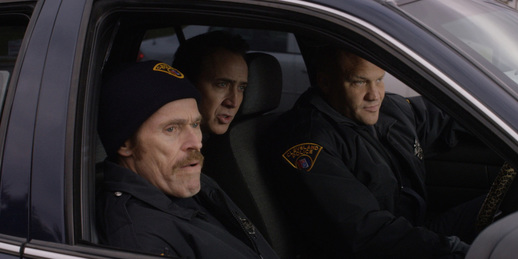 Violent, grotesque, mean-spirited, misogynistic, and really damn funny, Paul Schrader's Dog Eat Dog is a punch to the gut, a film that shows little to no regard for political correctness, delivering a grim, psychotic crime story about three lowlifes who have all just been released from prison. Back on the streets, the three men become seduced with the allure of one big score, once again leading them down a path that finds them in an all familiar place- at odds with society's desire for law and order. Dog Eat Dog is film that is best described as a journey to hell, a film which features absolutely no well-meaning characters throughout its narrative, as it follows the deplorable exploits of Tory, Diesel, and Mad Dog, three men whose propensity for drugs, violence, and the quick score, lead them into a constant cycle of violence and death. Dog Eat Dog is the type of film that doesn't apologize for its deplorable nature, being a film which finds Paul Schrader uninterested in the typical structure and ethos of the crime story, opting instead to simply unleash lead actors in Nicholas Cage & William Dafoe, who each deliver truly memorable performances as these two despicable men. William Dafoe particularly stands out as Mad Dog, an emotionally unstable character whose disregard for human life makes him both terrifying and highly entertaining. The comedy aspect of Dog Eat Dog is where the film really soars, routinely finding the humor in such insanity and violence, even subverting the viewers expectations at times. When the characters in Dog Eat Dog show a shred of decency or morality it is borderline subversive, leading to a few hilarious moments in which these despicable characters, at least for a second, question their heinous actions. Paul Schrader shows much more interesting in mood and tone than structure or narrative with Dog Eat Dog, a film that simply rejects traditional storytelling, with its narrative masking the unhinged nature of its characters. To say the film doesn't have a point would be misleading, as Dog Eat Dog encapsulates its characters, being a film that simply screams- I don't know why I'm doing what I'm doing, but to-bad, I want to do it this way. Featuring memorable performances all around, Paul Schrader's Dog Eat Dog is a ridiculous, enjoyable, despicable crime story that is sure to become a cult film in the years to come. 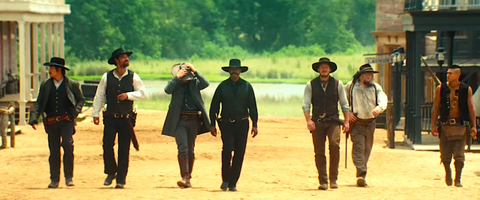 Antoine Fuqua's The Magnificent Seven is a full throttle, violent, relatively enjoyable experience, a film that coasts along on its strong overall performances, action, and heavy-handed message. Antoine Fuqua's retelling of the classic story takes place in the small town of Rose Creek, where Bartholomew Bogue, a greed-fueled industrialist, has overtaken the town by force, intent on mining the town's land for gold in an effort to satisfy his unquenchable thirst for money. Slaughtering the townspeople who won't secede their land to him, the surviving townspeople employ protection from seven drifters, a group of men made up of bounty hunters, outlaws, and guns for hire. Preparing to defend the town from the violent showdown that is just around the corner, these seven mercenaries for hire soon find themselves fighting for a cause that goes far beyond mere money. An action movie taking place in a Western setting, The Magnificent Seven has very little in common with the Western genre, exhibiting a cinematic style far more akin to the action films that have defined Antoine Fuqua's career. The cinematography is far too restrictive from a composition perspective, never visually expressing the scope of the great western frontier, often relying far too much on tight compositions that show off the mayhem and accentuate the performances of this talented cast. The action sequences are very violent for a PG-13 film, with the propensity of death throughout The Magnificent Seven feeling borderline overkill at times, as if the filmmakers took a little too much glee in the extermination of human life, though that is to be somewhat expected given the very cut-and-dry, black-and-white, nature of good and evil in this film. Make no mistake, the action in the finale is chaotic and entertaining, with the final 45 minutes of The Magnificent Seven finding the filmmaker in his natural element, one where chaos reigns and our protagonists finally get their blood-soaked revenge. Denzel Washington's performance is another generic Denzel Washington performance, a character who feels unstoppable and heroic, yet whose personal motives, which were quite predictable I might add, cheapen the film's overall message of human empathy and sacrifice for others. The stand out for me is by far Vincent D'Onofrio, who steals the show as one of the seven outlaws, doing his best Orson Welles impression as he reminds the audience that he is a damn national treasure due to his ability to always elevate a film, regardless of its shortcomings. While those fan's of the Western genre may be disappointed, Antoine Fuqua's The Magnificent Seven is a piece of fast-paced escapism, a film that is quite entertaining as long as one as able to look past its laughably, heavy-handed thematically elements. 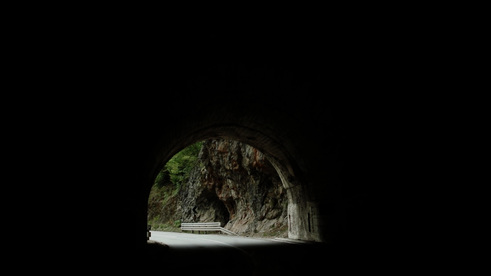 Deeply personal, yet universally expansive about the human condition, Kirsten Johnson's Cameraperson finds the celebrated documentary cinematographer delving into her vast trove of film footage, providing the viewer with an extensive collection of her experiences through the lens of her camera, footage which spans decades detailing our shared sense of humanity all over the world. A personal memoir, Cameraperson finds a filmmaker baring her life's work for the viewer, exhibiting a series of episodic juxtapositions which at first feel somewhat disjointed, only to reveal deeper truths, both intimate and universal, as the film progresses. Spanning various continents and cultures, Cameraperson's vignettes reveals the intimacy of personal connection, while also touching on both the grandoise nature of the world and life itself. Cameraperson is a love letter to the importance of documentary filmmaking and the overall power of image, with the film revealing how Kirsten Johnson's lens is her form of connection to the world, providing her with a sense of interconnectivity with those she documents. The film can feel like a series of unrelated vignettes at times, but Cameraperson slowly evolves as it progresses, detailing various aspects of Kirsten Johnson's own personal life, which she also documents with her camera, touching on the underlying truths related to how the camera itself is an essence of her being. The film touches on the complex relationship between unfiltered reality and crafted narrative, but Cameraperson never shows much interest in detailing the academic aspects of documentary filmmaking, instead focusing much more on the intimacy it details through both Kirsten Johnson's personal life and those of the subjects in which she documents. The line between her own personal life, whether it be her mother's sickness or her young twin children, and those in which she documents becomes blurred, as the film beautifully details the universal pain, joy, struggle, and successes, which connect all of humanity. Featuring a vast array of emotions, both positive and negative, Kirsten Johnson's Cameraperson is a thoughtful and intimate examination of a filmmaker's life's work, detailing the true importance of image, documentation, and journalism, while delivering a piercing study of the human condition. 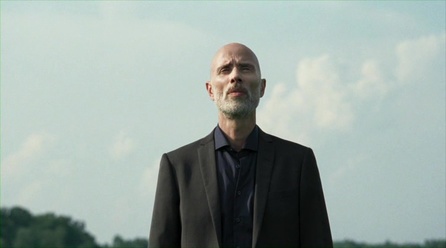 Denis Cote's Boris Without Beatrice is another singular vision from the enigmatic Canadian filmmaker, an introspective, adult fairy-tale about the pitfalls of vanity, which details the exploits of Boris, a wealthy businessman whose wife Beatrice, a high-profile politician, has fallen into a deep-seeded form of depression. Cote's film details a man in Boris who has grown cold and impatient to nearly everyone around him, with his stoic, business-focused demeanor creating a sense of detachment between not only Boris and his wife, but also his daughter who seemingly has an almost non-existent relationship due to Boris' misguided priorities. When a mysterious (and supernatural) stranger, played by the incomparable Denis Lavant, accuses Boris of being the man solely responsible for his wife's catatonic state, Boris begins to slowly reevaluate his life choices, a decision that slowly begins to reveal a man who wants nothing more than to be a better husband and father to those in his life he truly cares about. Denis Cote's Boris Without Beatrice is a detailed, honest portrait of a man in Boris who has lost sight of what is truly important in life, a man whose inherent hubris and vanity has left him naked to the pain he causes around him. Cote's film works quite well due to its ability to never fully demonize its central protagonist, understanding that Boris himself is a man of flesh and blood, with the film never delivering a plain, agenda-driven caricature of the inherent coldness of power and money, but a man who has lost his way. Boris Without Beatrice offers a compelling portrait of a character who is used to getting what he wants, detailing the general demeanor of a man in Boris who has never really had to do anything any other way but his way, due to his tremendous success as a businessman. His impatience with dealing with even the smallest details of inefficiency are fully realized through his interactions with everyone, from a sales clerk to his own family, with Cote painting a portrait of a man who simply has grown accustomed to being right and in charge. Even Boris' own stride, his movements, are assured, calculating, and efficient, with Cote creating a characterization that may not be very likable at times, but who is fully-realized, fair, and compelling. While Boris Without Beatrice never makes excuses for Boris' overall stern demeanor the film provides a compelling portrait of emotional pain, exhibiting how suffering and depression tend to lead to combustible anger, with Boris often coming across as very irritable, due in part to the pain he is going through. Boris is a mere mortal, and no matter how successful or prideful he is, he crumbles under the sheer powerlessness he finds himself in, unable to deal with idea that he can't control the situation. Throughout the film's running time Boris finds himself entering into sexual relations with two characters who are not his wife, almost as if sex is Boris' only form of personal connection, detailing how Boris as a character has become emotionally bewildered, only capable of feeling comfortable around those he can be physically intimate with. While some will surely find this aspect of the film appalling, I'd argue it's an important aspect of expressing Boris's struggles a character, detailing how his own lack of control and hubris have left him emotionally damaged, jumping into intimacy as a way of deflecting his own pain of seeing his wife in such a catatonic state. While Boris' own neglect is primarily to blame, which we learn due to the supernal, mysterious Denis Lavant, perhaps what rings the most truthful throughout Boris Without Beatrice is the importance of empathy and respect, with Boris reconnecting with his wife, mother, and daughter, due more to being respectful of their differences of opinion and general well-being, finally understanding their perspective towards why they feel so much pain, with his love for them being much more valuable in the end then their differences of opinion when it comes to the importance of financial success. An introspective fairytale about the dangers of vanity and hubris, Denis Cote's Boris Without Beatrice is another one-of-a-kind experience, a film that works incredibly well due to its strong, fair, and fascinating central character. 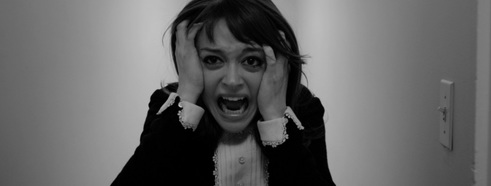 Mickey Keating's Darling is the type of film that works best when viewed as an artistic mood piece, a film that shows far more interest in delivering a perverse, stylish genre exercise full of atmosphere and ambiance than it does in delivering a fully realized horror film. Ambiguous in nature, Darling is centered around an ominous house located deep in the heart of the city, chronicling the slow-burning psychosis of a young woman who was hired to be the caretaker of this old home. Providing answers of any kind is no interest to the filmmakers of Darling, with the film being quite bare-bones in terms of narrative and plot, opting instead to focus on its perverse descent into insanity which finds our main protagonist slowly reaching the edge of madness as she attempts to make sense of the peculiar occurrences which surrounds her. Reminiscent of Roman Polanski's Repulsion, Darling's black and white aesthetic of piercing whites and muted blacks provide ample atmosphere and intrigue to its story of one woman's unraveling psychosis, with the film subtlety suggesting that the mansions long corridors, odd sounds, and confinement may have triggered deep-seeded insecurities inside our protagonist, with these mysterious, supernatural forces using her underlying loneliness and solitude to drive her to such heinous acts of violence later in the film. Darling is a film which aims to create an abstraction of terror, remaining very ambiguous throughout its running time as it attempts to create this horror-soaked atmosphere where anything and everything feels in the realm of possibility. As a mood piece, Darling can be quite impressive in execution, particularly from a cinematography perspective, with the film's use of symmetrical composition and depth of field creating a voyeuristic atmosphere that brings the house itself to life, giving the impression that our main protagonist is being watched by some malevolent force. The slow and methodical deterioration of this woman's sanity is certainly one of the most compelling attributes of Darling, but the filmmakers stylish sound design at times feels far too didactic in approach. Featuing an overabundance of piercing sounds, Darling telegraphs to the audience exactly how to feel far too often, while doing so in a way that at times makes the whole experience feel cheap, with the film trying to hard to create its terror-soaked atmosphere, almost as if the filmmakers themselves lacked faith in their own stylish, atmospheric vision. A film that could certainly be classified as style over substance, Mickey Keating's Darling is a slow burning descent into madness, being a film that offers very little in terms of narrative while offering an abundance of mood. Oh, and props to the filmmakers for the always warranted Larry Fessenden cameo. 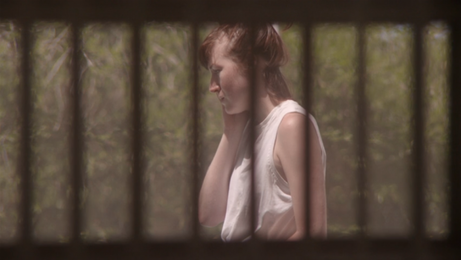 Robert Greene's Kate Plays Christine is a stunning accomplishment, a documentary that is part psychological thriller, part sociological study, delivering a one-of-a-kind piece of filmmaking that cements Robert Greene as one of the most essentially contemporary filmmakers working today. Centered around Actress Kate Lyn Sheil as she prepares to portray the role of Christine Chubbuck, a real-life news reporter who killed herself on national television in 1974, Robert Greene's Kate Play Christine offers a detailed study into the creative process, one that divulges into psychological thriller due to Kate Lyn Sheil's dedication to her craft. Kate Plays Christine is a piece of filmmaking that feels continually evolving, starting off as a intricate examination of an actresses creative process, one that finds Kate diving into the gruesome details of this woman's suicide as she attempts to understand and relate to this character. The deeper and deeper Kate Lyn Sheil digs into the details of the life of Christine, the more she becomes protective of this woman, intent on making sure that the integrity of this woman's life is not stomped upon due to the toxic details of her death. As the film progresses, Greene beautifully juxtaposes the details of Christine Chubbuck's life, namely her depression and perspective of the world, with that of Kate Lyn Sheil's own insecurities, drawing parallels between these two individuals, each of which has their own moments of anxiety, depression, and pain. While the psychological study of Kate Lyn Sheil is the driving force between the narrative of this fascinating documentary, Robert Greene's Kate Plays Christine elevates itself well beyond merely an in-depth look at the creative process of an actress, exposing what Christine Chubbuck's life and death says about society itself, one in which humanities penchant for saliciousness and violence comes first, with empathy placing a distant second. The film exposes our collective culture's infatuation with tragedy and death, examining how little reflection is spent on deconstructing the the pain and anguish that led someone to commit such an heinous act, detailing how we as a society still have a long way to go when it comes to dealing with depression. Neither fetishising nor glorifying this startling act of suicide, Robert Greene's film simply exposes how Christine Chubbuck gained more notoriety and attention in death than life, exposing the true tragedy that exists in a sensationalist-fueled society which only shows an interest in a lonely and depressed individual after they commit the ultimate act of surrender. Kate Plays Christine argues that the salaciousness of the news, how it focuses on "the blood and guts" is simply a biproduct of a much larger disease in society, one that still fails to acknowledge that depression and pain are ingrained in the very essence of the human experience and must be treated accordingly. Through Kate's research of this deeply tragic story Robert Greene's film becomes quite angry as it reaches towards its conclusion, loudly expressing the importance of perpetually having a conversation about and acknowledging the far-reaching nature of depression in our society, recognizing that it's something that can happen to anyone given the cold, harsh reality of the world itself. The final shot of the film only emphasizes this brooding anger, a scene which finds Kate Lyn Sheil in character as Christine Chubbock carrying out the final sequence, the actual suicide. Emotionally ravaged, Kate Lyn Sheil angrily states she can't go through with filming the suicide, screaming that she doesn't want to give the audience the violence they want to see. The sequence is startling, meta, and jarring, beautifully exhibiting the angry rally cry of the filmmakers, pleading for us as a culture, society, and species to always see the importance of life over death, pleading that we stop glamorizing the deaths of these tragic stories, hoping we instead can focus on their lives when lived and attempt to understand how someone can fall so deeply into despair. Haunting, illuminating, transfixing, and profound, Robert Greene's Kate Plays Christine is an extremely well-made piece of documentary filmmaking which further establishes Robert Greene as one of the essential contemporary filmmakers working in non-fiction. 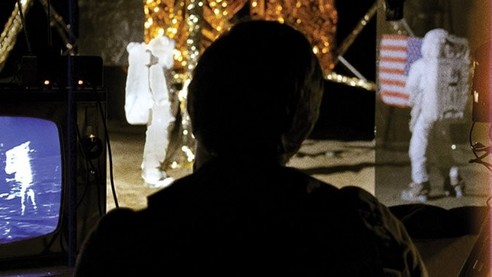 Taking place in 1967 at the height of the Cold War, Matthew Johnson's Operation Avalanche tells the story of Matt and Owen, two ambitious, young CIA agents who have some specialization that relates to production and video services. The tension surrounding the cold war has bled into all phases of life, with NASA's space program being the new focal point of this stand off between the United States and the Soviet Union, with each nation intent on being first to the moon. Going undercover at NASA to investigate a possible Russian mole, Matt and Owen soon find their tireless ambitions getting the best of them when Matt proposes an elaborate plan to stage the whole moon landing, an ambitious proposal that is agreed upon by their superiors in the government, which unfortunately and inevitably puts both of their lives in danger. Matt Johnson is one of the true auteurs of indie, contemporary cinema due his ability to create unique stories that defy typical genre classification. Much like his previous film The Dirties, Operation Avalanche is another such film that beautifully lulls the viewer to sleep with its charismatic charm, characters, and creativity, only to reveal a much darker, thought-provoking experience in the end. With its narrative centered around the conspiracy theory that the US government staged the moon landing, Operation Avalanche is material perfect for Matt Johnson's strengths, being a filmmaker whose love and passion for cinema is felt throughout every frame. Much of Operation Avalanche pulsates with energy and optimism, mirroring the spirited ambition of Matt who simply wants to prove himself to his superiors, tapping into the creative mindset of filmmaking to stage this elaborate hoax. For much of the film one could argue that Operation Avalanche is about the magic of filmmaking and creativity itself, with Matt and Owen solving the government's problem through ingenuity and creativity, regardless of the ethical questions raised by this type of cover up they are enabling. Of course this type of energy and optimism begins to fade when Matt begins to finely see beyond his own ambition, realizing the cold, mechanical nature of government bureaucracy and it's penchant for determining what is best for the greater good. In this sense, Operation Avalanche becomes a story of the perils of ambition, with Matt and Owen's very lives being endangered due primarily to Matt's desire to prove his worth. Throughout Operation Avalanche there is an undercurrent of this unsettling reality, but the film's tone remains light and humorous, clinging onto Matt's own ambition blinding mindset. Towards the end of the film, Operation Avalanche is almost unrecognizable from its earlier tone, descending into a tenser experience, one that reflects the true seriousness of the situation in which these characters find themselves, one in which Matt himself is a liability to the great lie the government must now protect and conceal at all costs. Operation Avalanche's technical attributes are also impressive, especially when considering the budget restrictions, with the filmmakers effectively creating the look and feel of the late 60s, using various film stocks to give the film the same grainy look and feel, while also intercutting archival footage at times to only strengthens the authentic look and feel of this wild conspiracy theory inspired subject matter. Matt Johnson's Operation Avalanche is a film that touches on a wide array of emotions throughout its running time, being a film that defies traditional genre classification while delivering its tale about the perils of ambition. 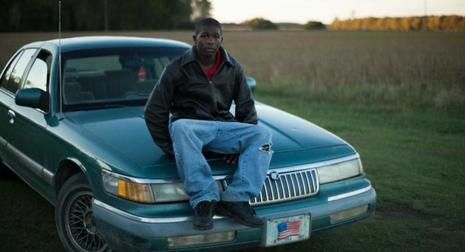 Margaret Byrne's Raising Bertie is an in-depth, six-year portrait of a small rural community in Bertie Country, North Carolina, documenting the journey of three young African American boys as they near adulthood and are confronted with the reality and responsibilities that come with it. All three boys profiled, Davonte, Reginald, and David, attend The Hive, an alternative school for struggling children, but when its funding gets shut down by the public school system, all three subjects find their resolve tested as they attempt to define themselves and build a future in this environment where opportunities are hard to find. Raising Bertie is a powerful story of determination, environment, culture, and circumstance, a film which provides three detailed portraits of rural youth, exhibiting their shared struggles of circumstance and environment, while also detailing their unique attributes with define them as an individual. An organic experience, Raising Bertie is an observational documentation, a film that doesn't go out of its way to point out generational poverty, educational equity, and race, instead letting various socioeconomically issues unfold naturally in front of its lens, offering a complex, valuable portrait of the lives of three young boys that details how complex and difficult their experiences can be. The film never blatantly talks about parenting or family, but what becomes rather noticeable throughout Raising Bertie is the overall lack of male role models, with all three of these young boys having relatively poor relationships with their fathers. The toxic effects of how culture defines masculinity is an undercurrent that runs throughout the film, with all three young boys introspectively struggling to define themselves in a culture that tells young men to "be a man" and make no excuses for themselves. The harmful nature of this relationship, one which reinforces toughness and accountability while not providing guidance or fatherly role models is one of the more interesting aspects of Raising Bertie, a complexity which in a sense fuels the generational poverty which all three of these young boys find themselves a victim of. The importance of education and what that means is another major aspect of Raising Bertie, a film that details how education is a form of empowerment for these young individuals. The contrast between The Hive and the public schools is felt often throughout Raising Bertie, as the film becomes a rather powerful documentation of the need for more personal connection in education, one that encourages the individual through positive reinforcement and personal relationships, not simple regurgitation. When these three young boys transfer to public school, they by-and-large struggle, with the film documenting the cold, impersonal nature of the public education system, one that is more focused on regurgitation of information than igniting the minds of the youth who enter and exit its grounds. While Raising Bertie touches on a host of fascinating and important issues that effect these young men, the film never forgets that it's first and foremost a documentation of these three characters, offering a means for these young men to express themselves and define their own wants, desires, and struggles, a decision that makes the larger thematic ideals all the more powerful, due to the personal and emotional investment the audience, and filmmaker, have for these characters. Detailing the lives of Devonte, David, and Reginald, Raising Bertie is a longitudinal documentary that provides no easy answers, offering up a powerful and profound evocation of a variety of complex and important issues facing rural American youth. 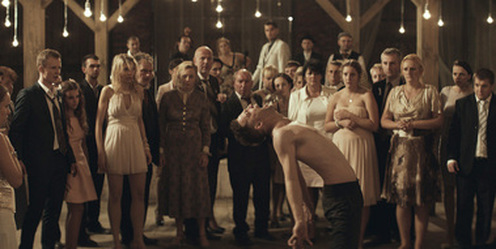 Marcin Wrona's Demon is an introspective study of regret and internal anguish masquerading as a horror film, telling the story of Piotr, a bridegroom, who on the day of his own wedding celebration becomes possessed by some type of unquiet spirit. Featuring hazy, foggy exteriors, dimly lit interiors that feature high contrast lighting, and eerie sound design, Demon is a film that effectively creates an atmosphere of horror and intrigue centered around its story, enticing the viewer with its atmospheric tone which suggests true evil is lurking around every corner. Marcin Wrona's film begins as an intriguing ghost story, with Piotr struggling to understand the strange happenings he is experiencing on the very cusp of his wedding day This aspect of the film takes place very much in the headspace of Piotr, documenting the anxiety and confusion this character faces as the slow-moving effects of his possession become more and more dramatic as his wedding ceremony draws near. Marcin Wrona's film's atmosphere is felt throughout the wedding ceremony, with the filmmaker beautifully juxtaposing the chaotic nature of any wedding with the horror of possession, with Marcin Wrona using Piotr's natural anxiety about impressing his wife's family and friends as the perfect counterbalance to the character's demonic visions and strange occurrences he is experiencing. When Piotr's wife and family realize his behavior isn't merely anxiety and nerves, Demon finds its wings as a film, becoming a truly ambiguous yet piercing study of regret and pain. Starting off as an intriguing ghost story, Marcin Wrona's Demon completely subverts the expectations of the viewer in its back half, venturing into complete abstraction as the film provides an ambiguous meditation on historical amnesia. This is a film that provides no simple answers to the viewer, only questions, with Piotr's possessesion serving as a catalyst that triggers the deep-seeded despair and regret lurking in the past of some of Piotr's father-in-law, among others, whose burden, while ambiguous, is very much experienced. Ambiguous and abstract as to what actually is haunting these characters, Demon will frustrate many viewers who want some type of closure into the unquiet's spirits purpose, yet what Marcin Piotr has created feels nonetheless deeply personal, being a film that attempts to capture the deep-seeded pain which exists in the unspoken word, establishing characters such as Piotr's father-in-law who appear to be haunted by the past in one way or another. While Marcin Wrona's Demon could certainly have delivered more bite from a horror perspective early on, the film slowly reveals itself not as a horror film about possession but one about the burden in which the past can have on the present, with Demon touching on some primal ideals of horror that every individual who has any form of past regret can relate too, no matter how abstract the film's narrative and characterizations may become. |
AuthorLove of all things cinema brought me here. Archives
June 2023
|

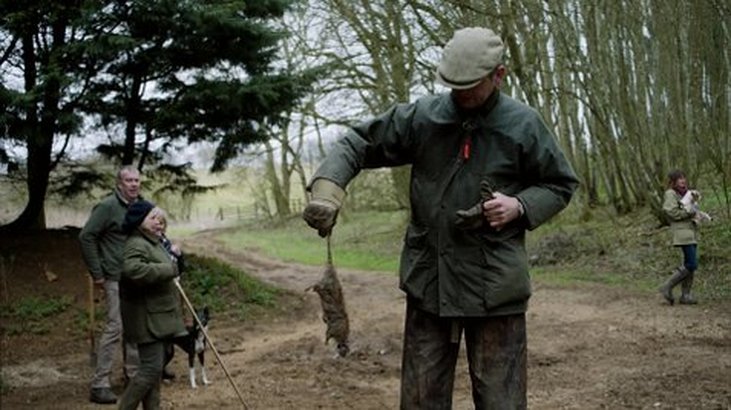
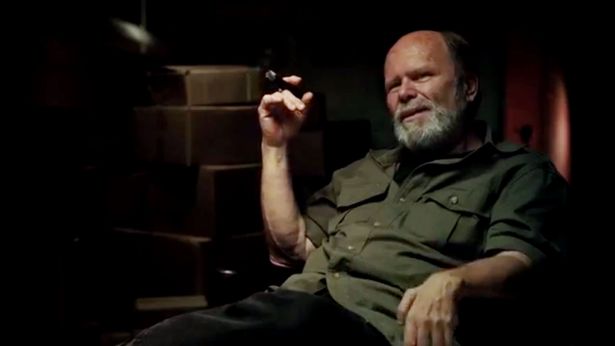
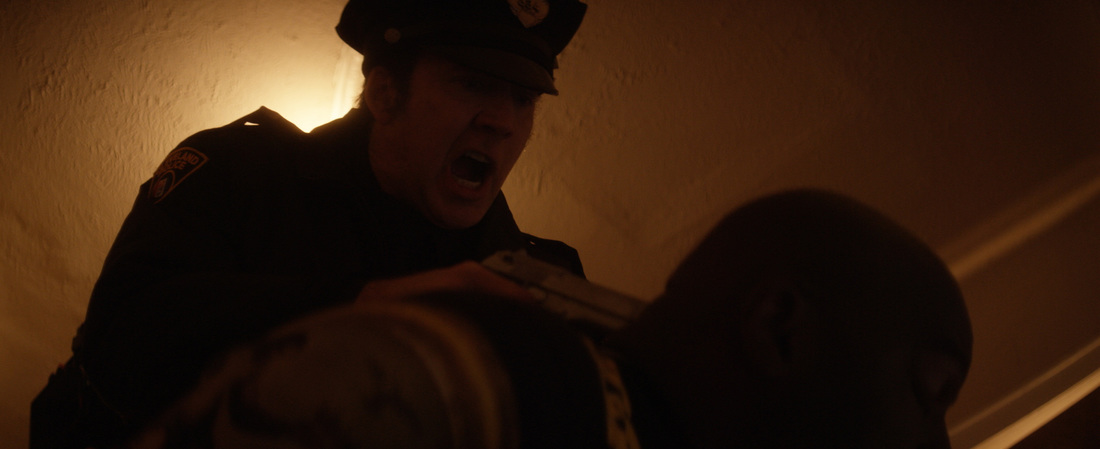
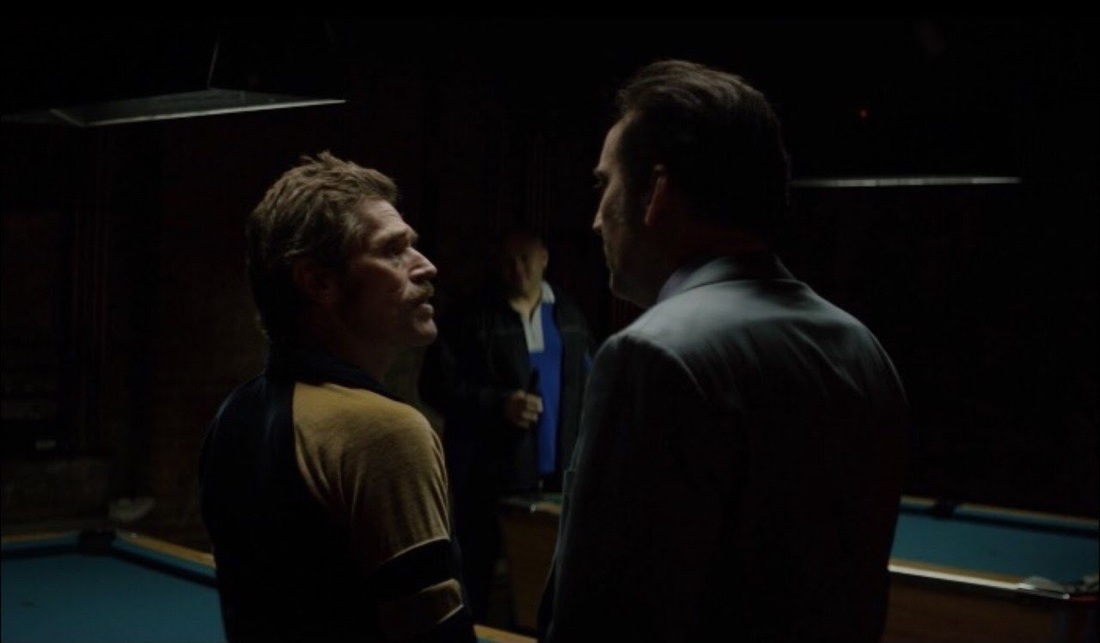
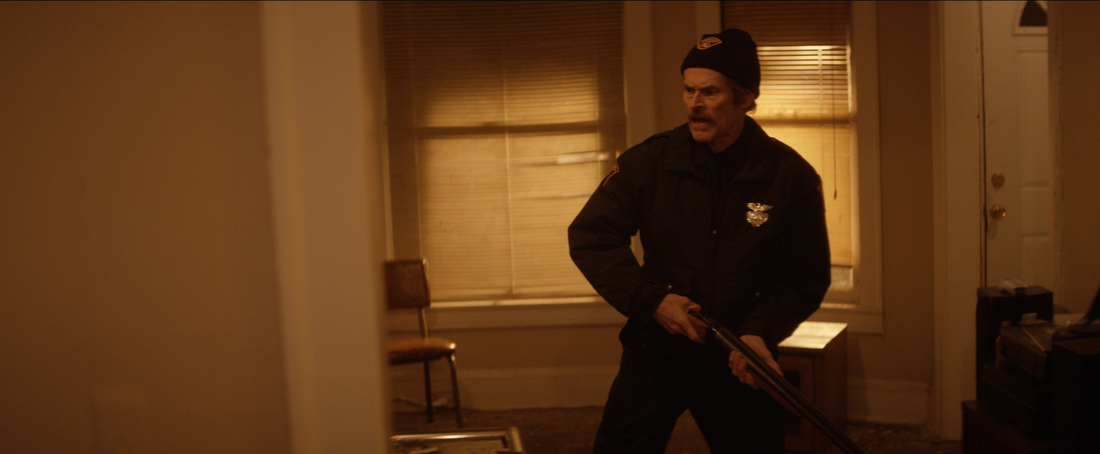
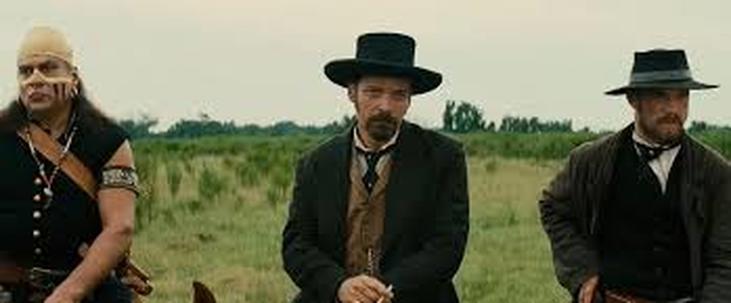
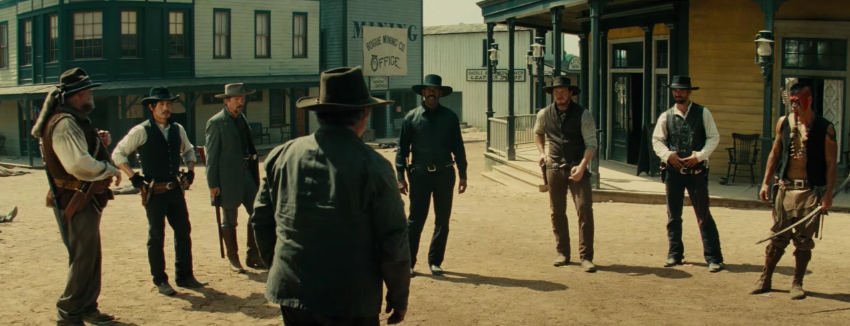
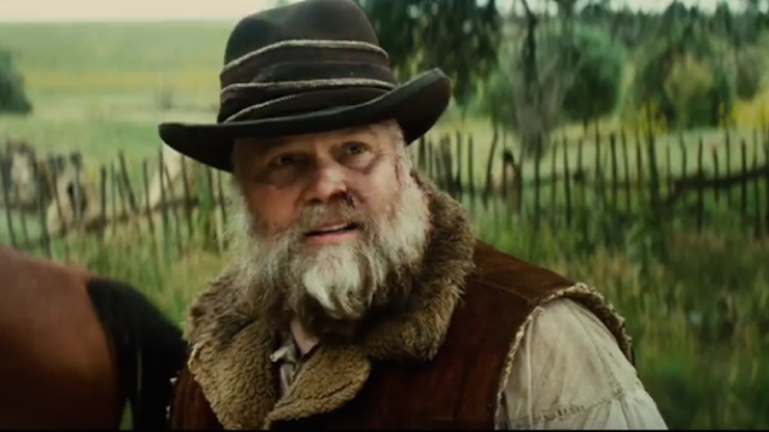

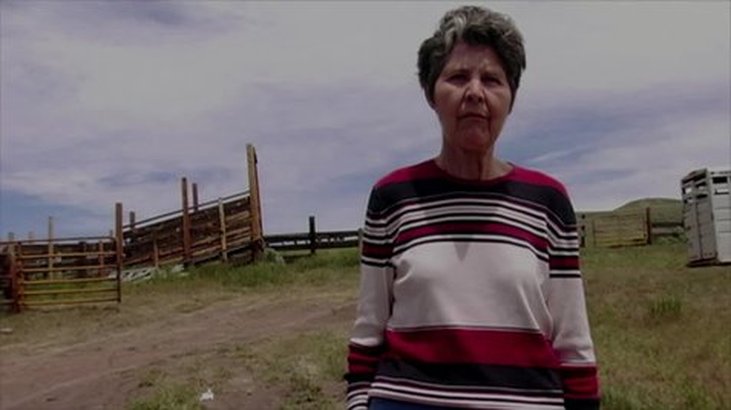
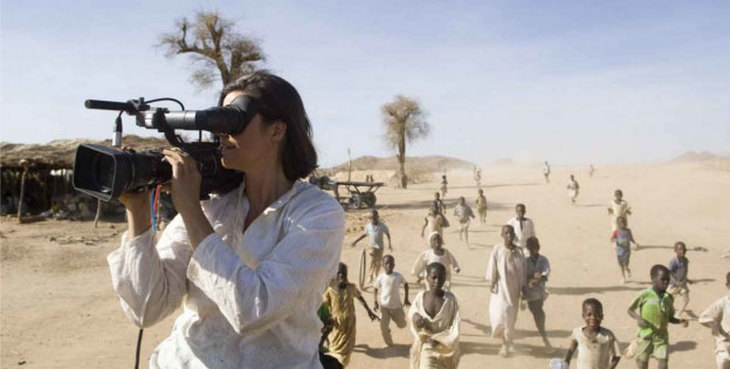
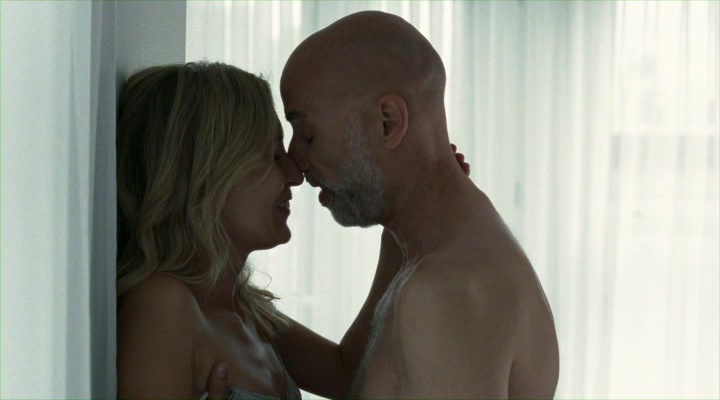
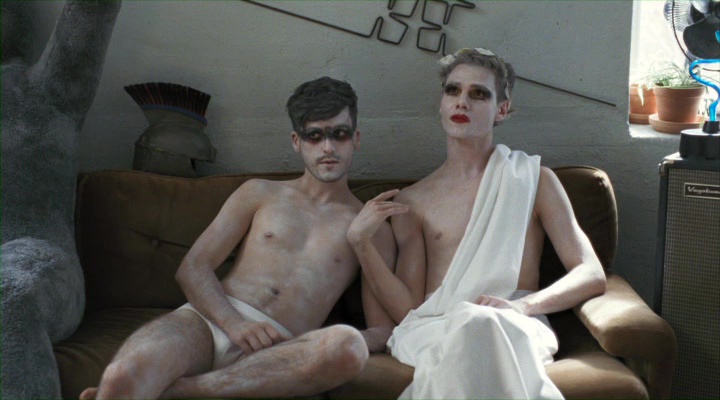
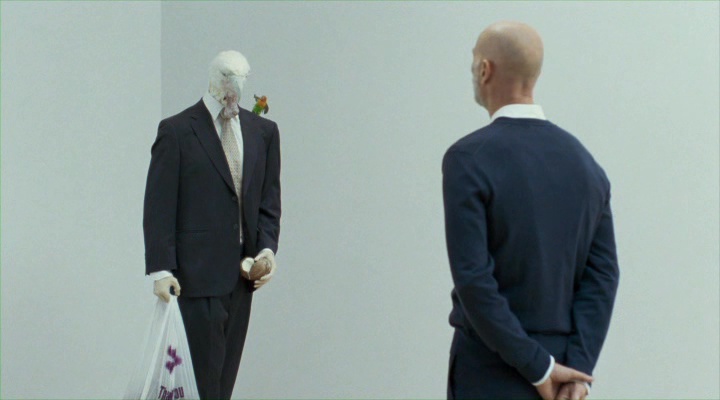
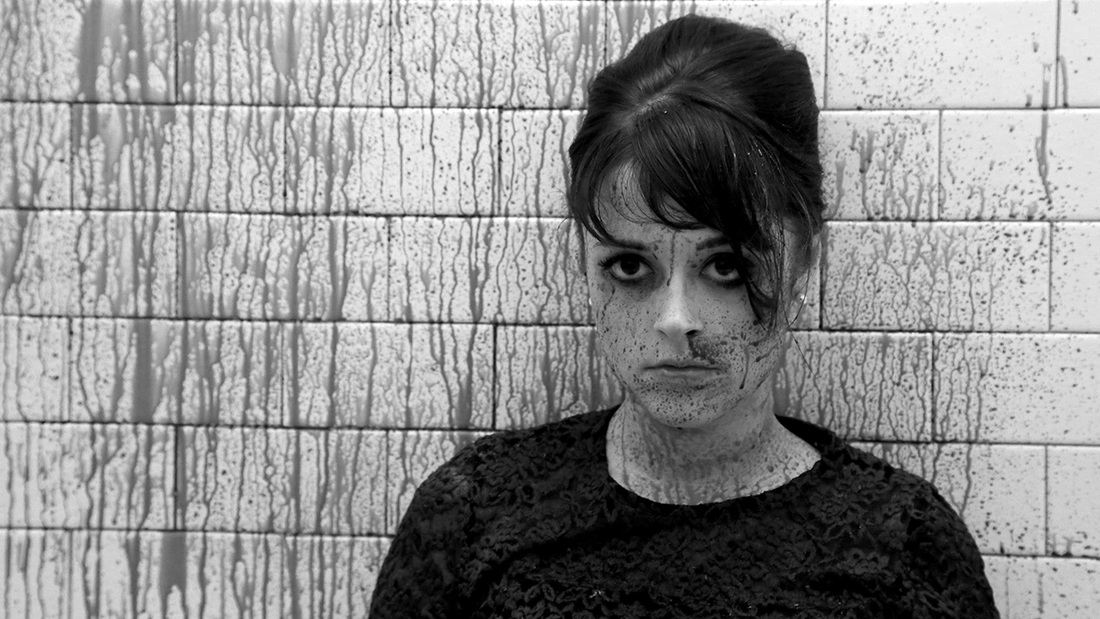
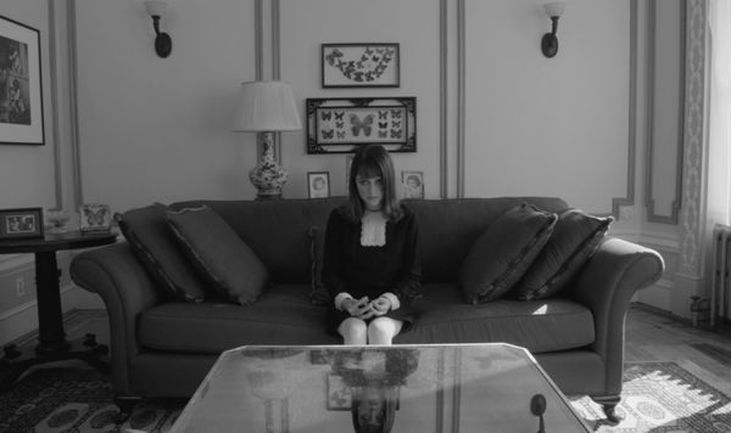
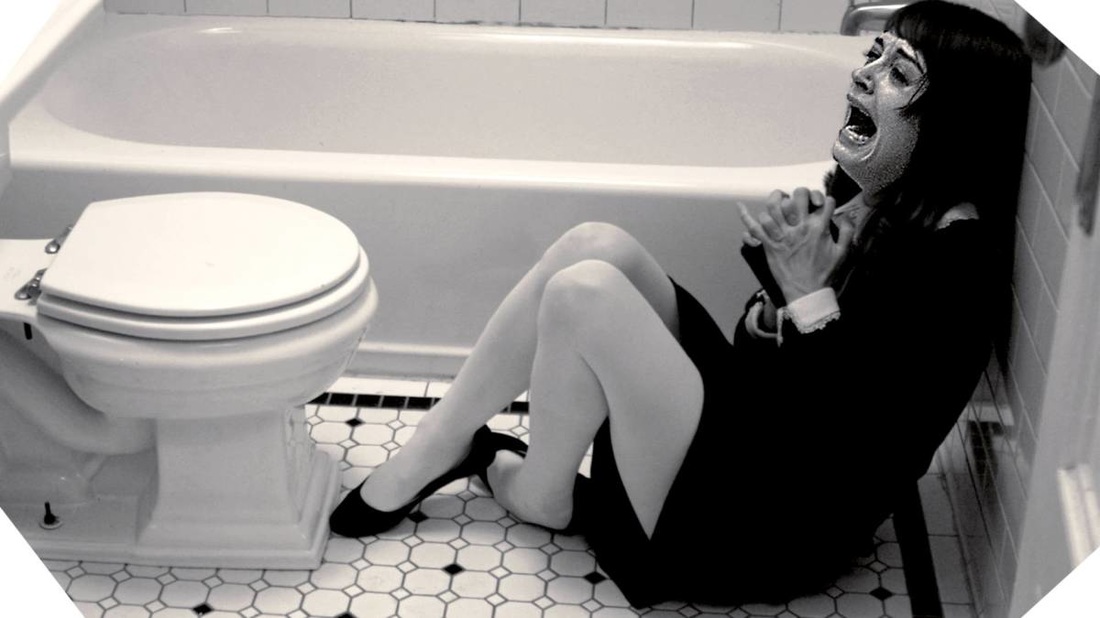
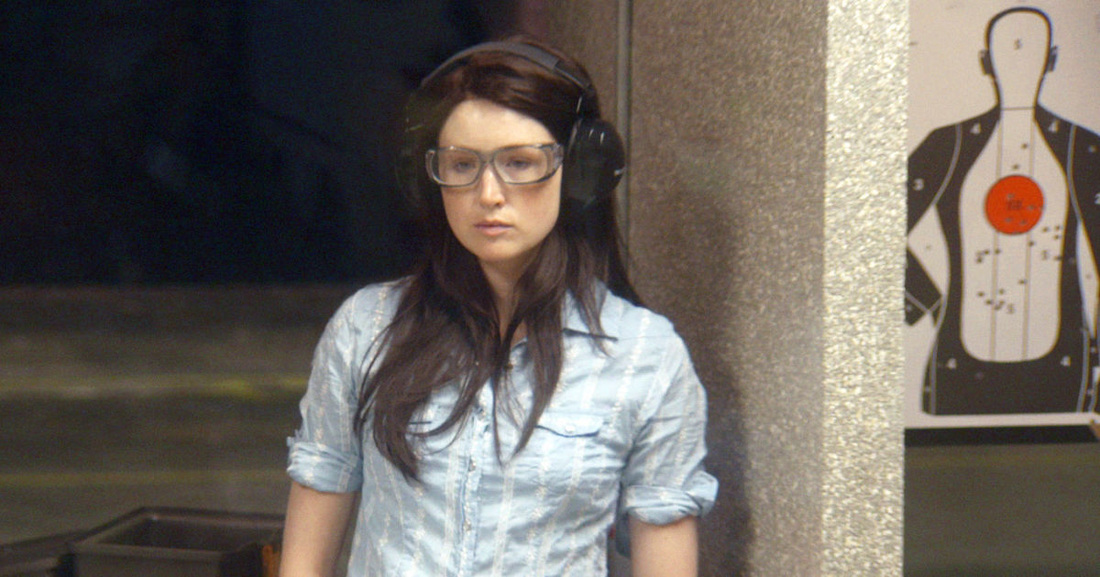
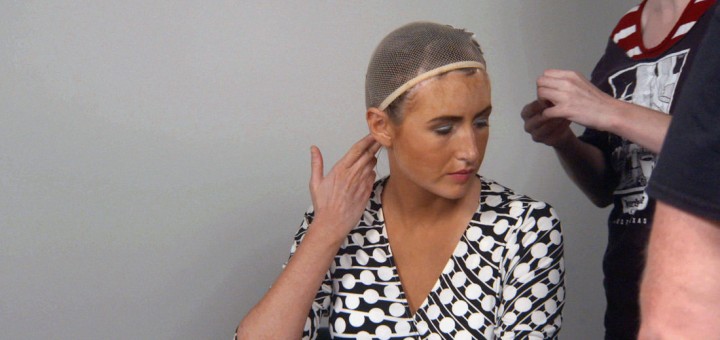
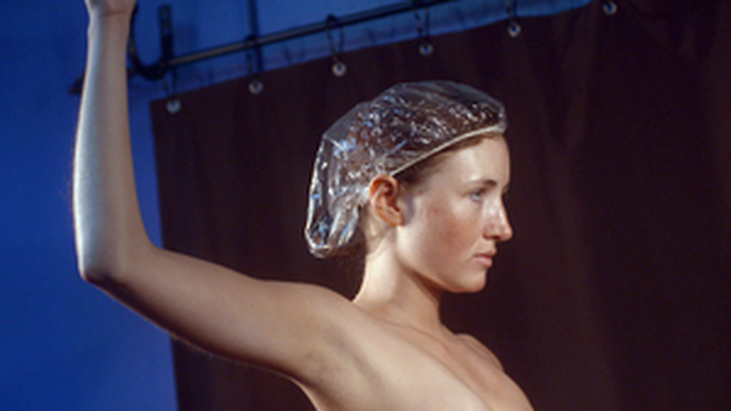
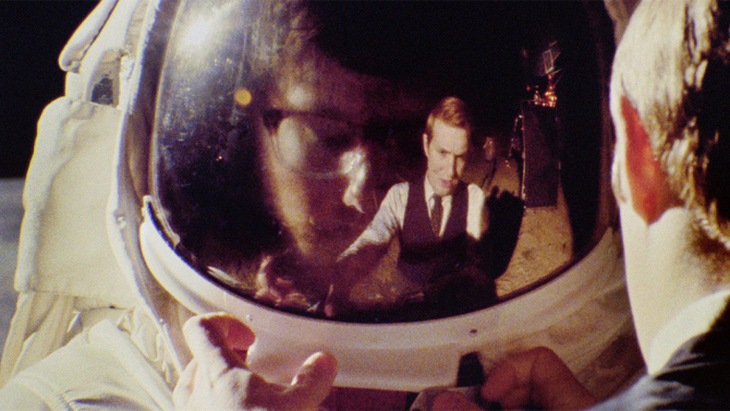
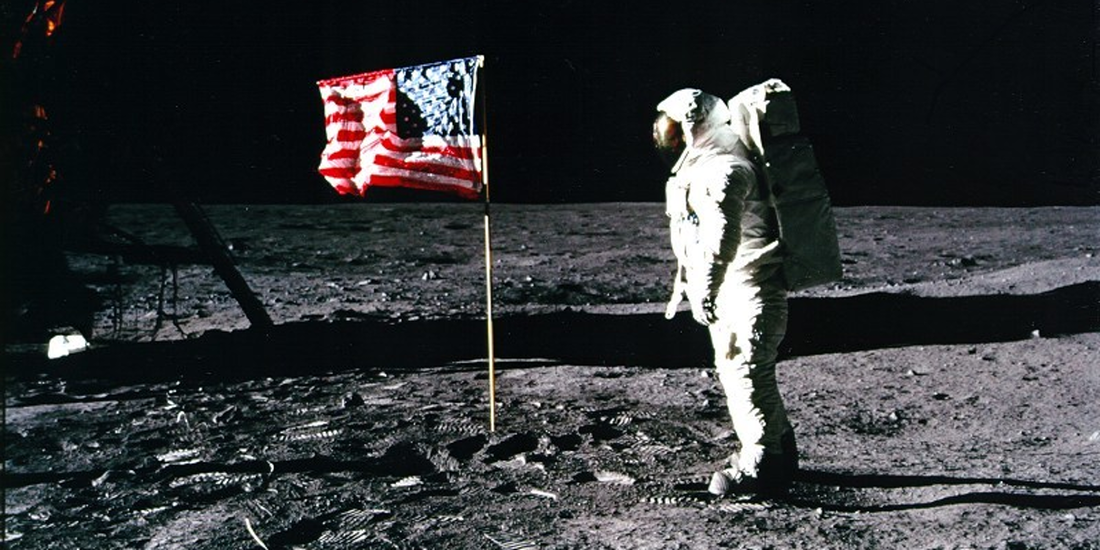
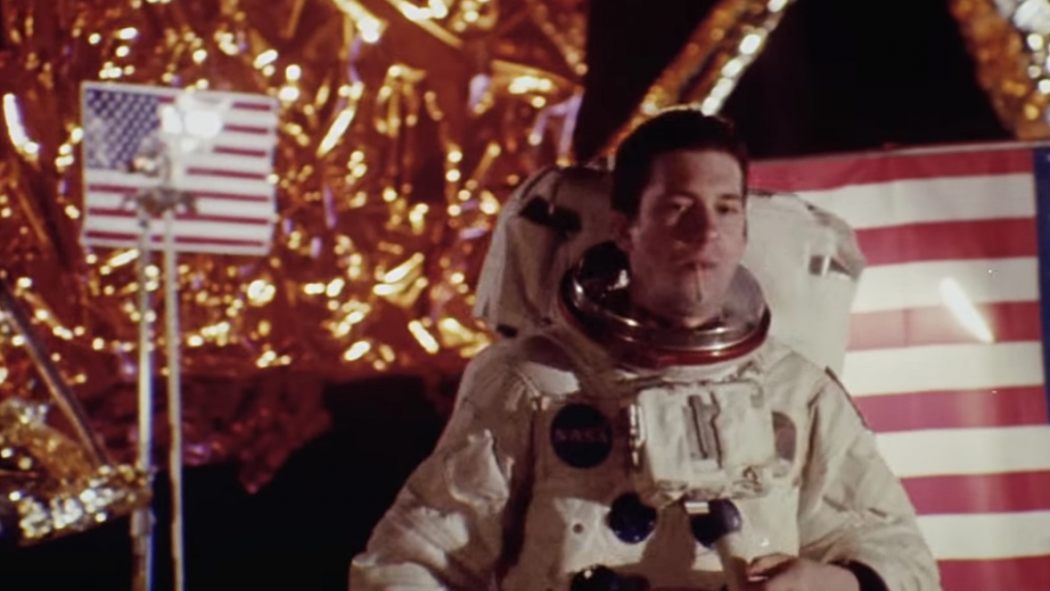
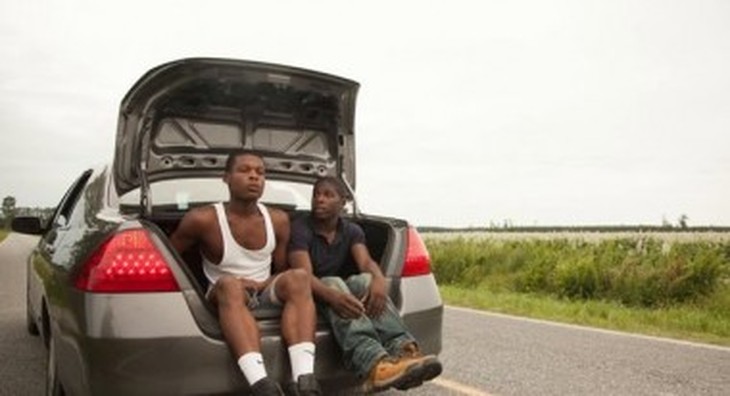
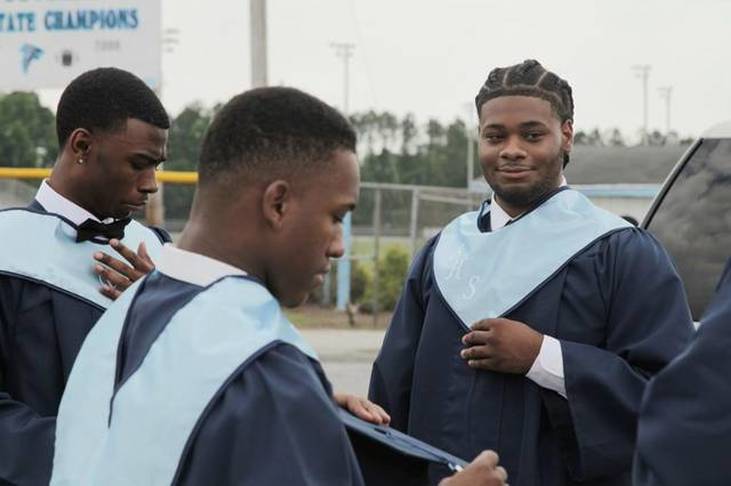
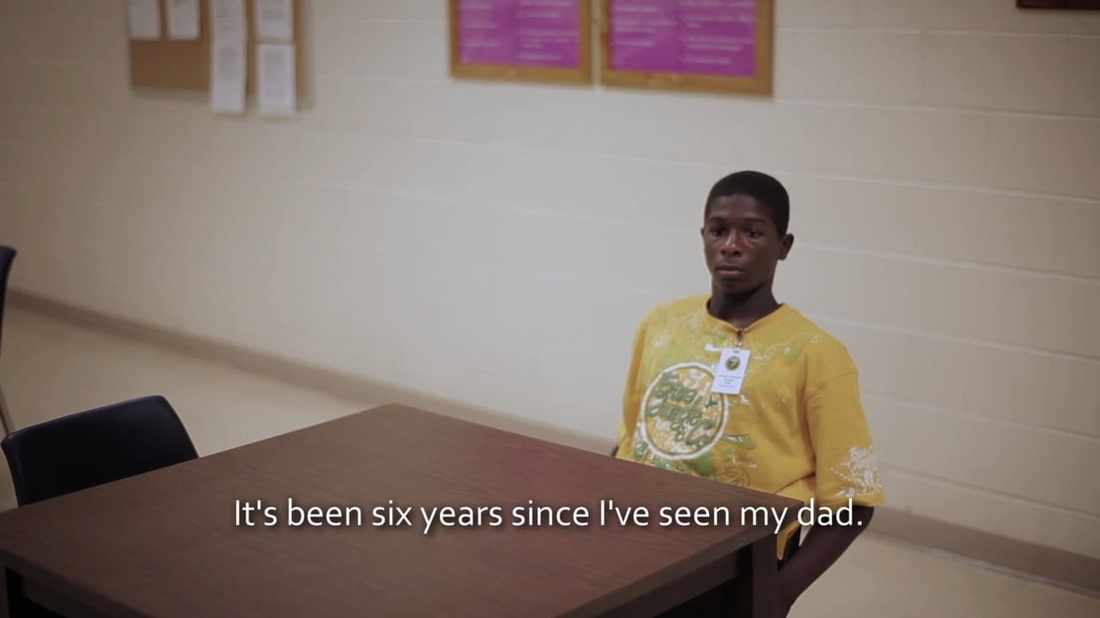
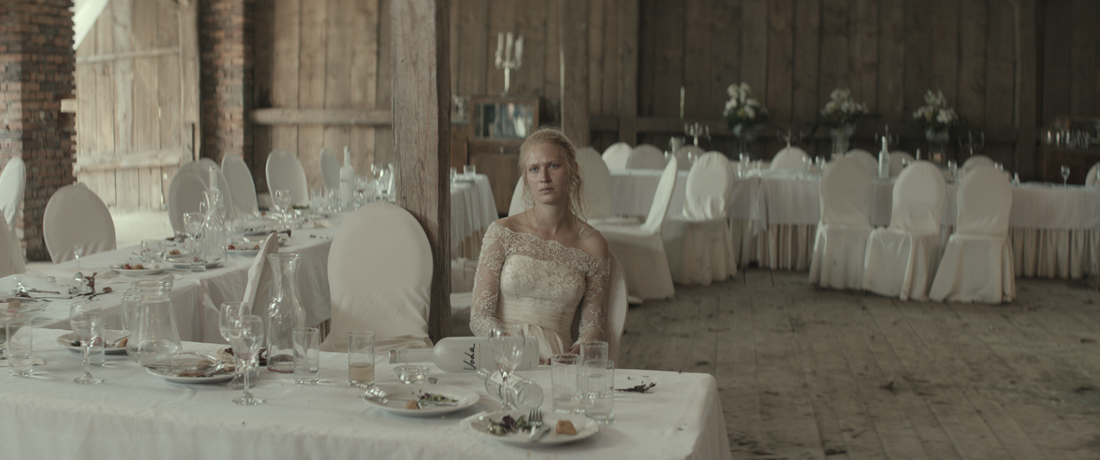
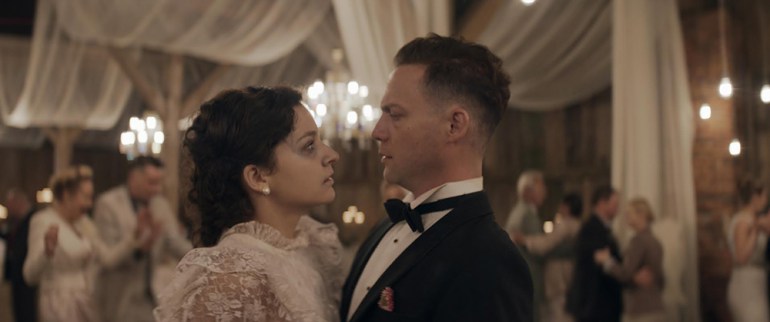
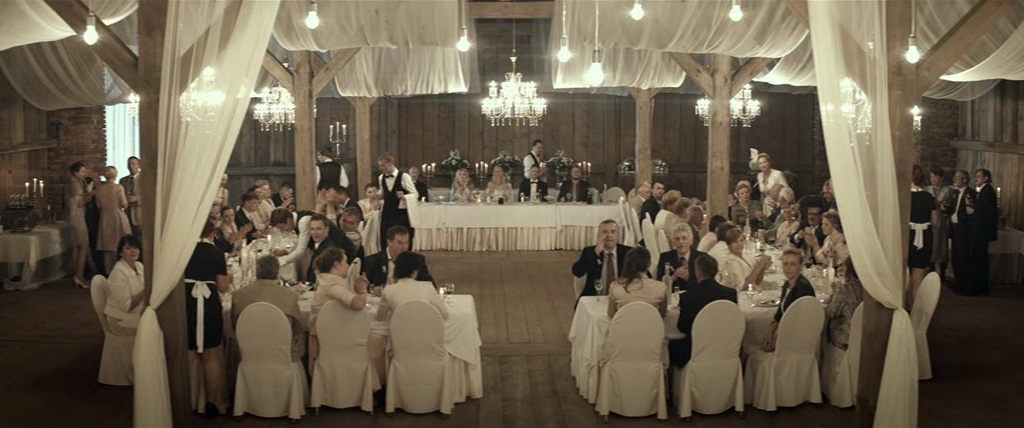
 RSS Feed
RSS Feed
